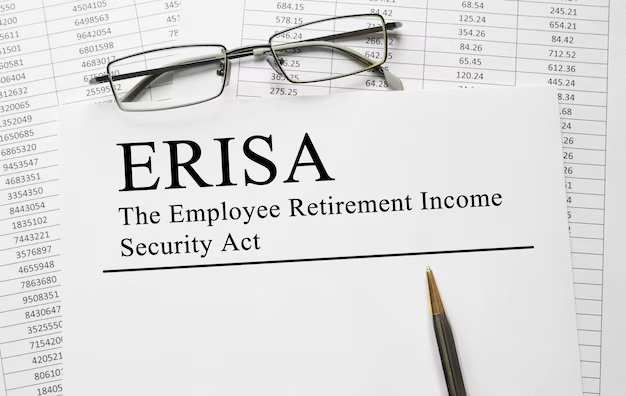Navigating Social Security and Disability Benefits: What You Need to Know
Understanding the intricacies of Social Security and disability benefits can be a daunting task. Whether you're preparing for retirement or coping with a disability, knowing your options is essential. This guide will explore the possibilities and distinctions between Social Security and disability benefits, offering clarity and guidance on how you can potentially receive both.
💡 What Are Social Security and Disability Benefits?
Before diving into whether you can receive both, let's outline what these benefits are:
Social Security
Social Security is a federal program designed to provide financial support to retired individuals, survivors of deceased workers, and people with disabilities. Funded through payroll taxes, it aims to replace a portion of earnings lost due to retirement, disability, or death.
Disability Benefits (SSDI)
Disability benefits are provided under the Social Security Disability Insurance (SSDI) program. These benefits support individuals who cannot work due to a medically determinable physical or mental impairment that lasts, or is expected to last, for at least one year or result in death.
Supplemental Security Income (SSI)
While often mentioned alongside SSDI, SSI is different. Supplemental Security Income provides financial assistance based on need, targeting elderly, blind, or disabled individuals with little or no income.
⚖️ Can You Receive Both Social Security and Disability Benefits?
Navigating the combined benefits of Social Security and SSDI can often lead to confusion. Here's what you need to know:
Age Considerations: It's important to recognize that SSDI may transition to regular Social Security benefits once you reach full retirement age. The amount received generally remains consistent, ensuring continuous support without interruption.
Criteria for Benefits: Eligibility criteria differ for each program. SSDI requires a strong work history and a qualifying disability. Regular Social Security benefits primarily depend on age and work credits earned over your employment history.
Concurrent Payments: Typically, one cannot receive both SSDI and full Social Security retirement benefits simultaneously. Instead, your disability benefits automatically convert to retirement benefits, seamlessly continuing to provide financial aid.
Important Checklist: Eligibility and Application 📋
- Work Credits: Ensure you have sufficient credits either from your own work history or, in some cases, from a spouse's or parent's record.
- Medical Documentation: For SSDI, gather comprehensive medical records as proof of your disabling condition.
- Application Process: Applications can be a complex routine; prepare ahead by organizing all necessary paperwork.
📚 Related Considerations
Understanding eligibility for combined benefits leads to a broader conversation regarding other support systems available and how these interrelate with Social Security and SSDI.
Medicare and Medicaid: Knowing the Difference
Receiving SSDI may automatically qualify you for Medicare, irrespective of age, after a 24-month qualifying period. Alternatively, Medicaid caters to those receiving SSI or with limited financial resources, providing crucial healthcare support.
Impact of Work on Benefits
Working while receiving disability presents its own set of considerations. While SSDI allows for some work within specific earning limits, excessive earnings may jeopardize benefits:
- Substantial Gainful Activity (SGA): This threshold determines if your work level remains within SSDI's permissible limit.
- Trial Work Period (TWP): SSDI recipients can attempt to resume work under a nine-month trial period without losing benefits.
Strategic Financial Tips 🤝
Navigating these programs simultaneously can be challenging. Here's how to maximize your benefits:
- Plan Ahead for Retirement: Factor in the point at which disability benefits shift to retirement status. Align this with personal retirement savings or plans.
- Utilize Available Resources: Leverage Social Security offices for expertise and personalized guidance. Financial advisors can also provide insights specific to your situation.
Understanding Spousal and Family Benefits
Often overlooked are the qualified benefits family members, such as spouses or children, might receive based on your work record. Exploring these options can amplify the total support available:
- Spousal Benefits: A spouse may receive benefits based on your work record without reducing your benefit amount.
- Dependents' Benefits: Children under specific conditions (age, student status) might be entitled to benefits, enhancing family financial support.
💼 Practical Summary: Steps to Consider
Here's a succinct overview of actions and considerations to guide your journey through Social Security and disability benefits:
- ✅ Review Your Work Credits: Ensure your work history suffices for benefit eligibility.
- 📊 Gather Required Medical Documentation: Comprehensive records bolster SSDI applications.
- 💡 Explore Family Eligibility: Understand potential benefits accessible to spouses and dependents.
- 🔍 Investigate Healthcare Options: Medicare vs. Medicaid and how they apply to your situation.
- 💬 Seek Professional Guidance: Consider consultations with Social Security offices or financial advisors for personalized advice.
Navigating the intersection of Social Security and disability benefits doesn't have to be overwhelming. Awareness of eligibility criteria, understanding the transition process from disability to retirement benefits, and knowing related considerations can guide you toward making informed decisions. Whether focusing on securing healthcare coverage, evaluating impacts of employment, or exploring potential family benefits, equipping yourself with knowledge allows for financial confidence and security.

Related Topics
- Are Disability Social Security Benefits Taxable
- Are Social Security Disability Benefits Taxable
- Are Social Security Disability Benefits Taxable Income
- Are Social Security Disability Benefits Taxed
- Are Social Security Disability Payments Taxable
- Are Social Security Disability Payments Taxed
- Can a Felon Get Social Security Disability
- Can a Grown Disabled Child Collect Parents Social Security
- Can Felons Get Social Security Disability
- Can I Collect Disability And Social Security
